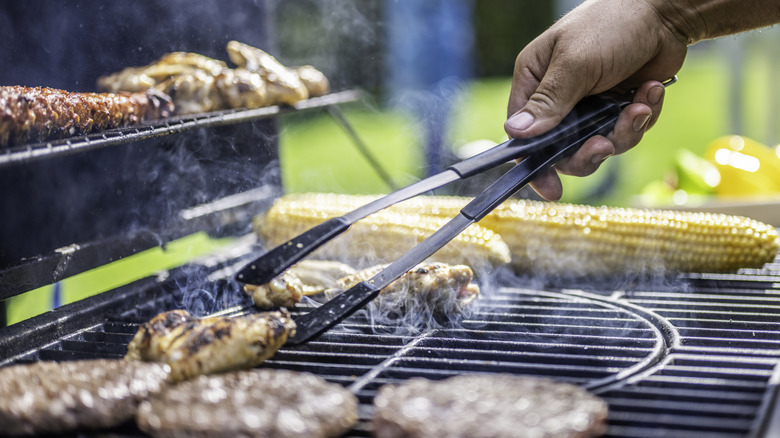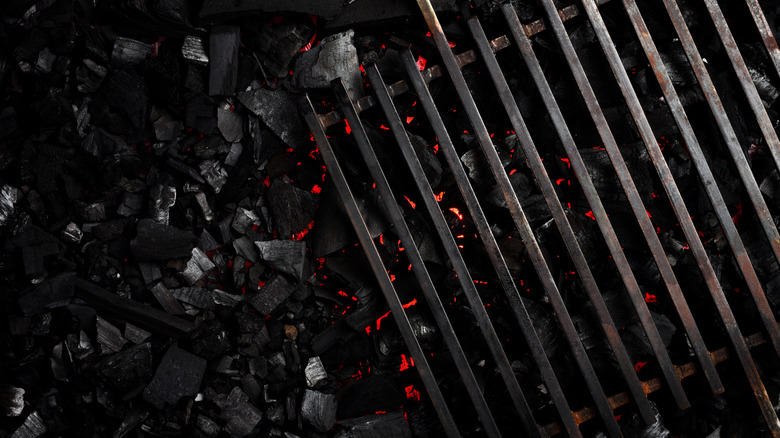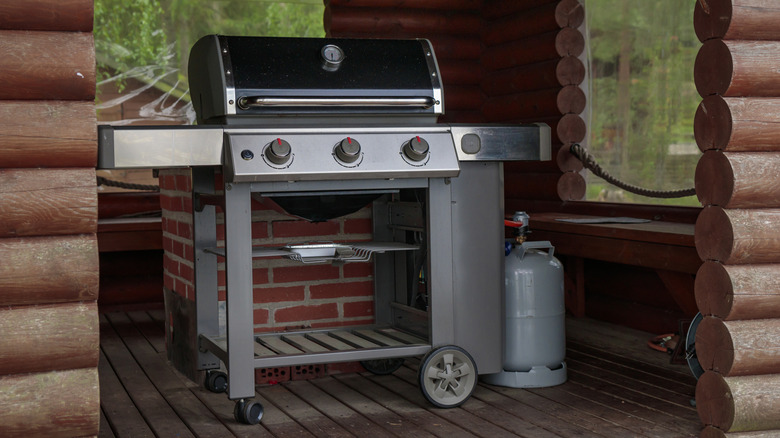Is Propane Grilling Considered Healthier Than Charcoal?
I love when summer rolls around and I can throw my favorite foods on the grill to get that coveted, smoky goodness during a family cookout. I'm partial to a charcoal grill, but I've recently learned my preference may not be considered healthy. Propane is more convenient, but there are some downsides to using that option as well. At the end of the day, when you know better you do better. With all the info at our disposal, it doesn't hurt to lay the facts out so you can make an informed decision regarding your BBQ techniques. So, let's get into it.
When choosing between propane and charcoal, propane grilling comes out on top as the healthier option for several reasons. Propane burns cleanly and with greater precision, meaning the flame is stable and doesn't produce as much smoke or unpredictable direct heat. Those factors matter because of polycyclic aromatic hydrocarbons (PAHs) and heterocyclic amines (HCAs), which are chemical compounds produced during grilling that are linked to an increased risk of cancer. Propane grills don't completely eliminate the risk, but they minimize it a lot more compared to a charcoal grill.
That said, propane grills still require you to understand how to set it up if you're going to use it. There's basic gas grill safety, learning how to check your propane tank using warm water (a helpful trick to ensure your grill is working properly), and cleanup. Propane doesn't eliminate all grilling risks, but it reduces them significantly, which leaves more room to focus on smart cooking techniques like controlled heat, frequent flipping, and trimming fat.
What makes charcoal a riskier choice
Charcoal grills are notable for their rich, smoky flavor. But that taste often comes with a more significant build-up of carcinogens since charcoal burns hotter (typically between 600–700 degrees Fahrenheit), which can increase the formation of HCAs and PAHs.
PAHs are created when fat or juice from the meat drips onto the hot coals (or some other heating element), causing flare-ups which release smoke. This smoke then coats the food with PAHs. HCAs are different because they form directly on the meat itself when cooked at high temperatures, especially during prolonged grilling or when charring occurs. The American Institute for Cancer Research warns that cooking meats at extreme temperatures over open flames is a major cancer risk.
If you're still not ready to give up that taste, there are effective ways to combat the side effects from charcoal grilling. Marinating meat beforehand is one of the most powerful techniques. Scientific research suggests that marinades which contain olive oil, lemon juice (or vinegar), and herbs can reduce HCA formation by up to 99%. Similarly, a controlled experiment on beef steaks showed herbal and acidic marinades reduced HCAs by 57% to 88% thanks to antioxidants in ingredients like rosemary.
Besides a good soak, other tips include trimming excess fat before grilling, cooking over indirect heat, and using aluminum foil shields to prevent fat from dripping directly onto hot coals which stops the creation of that PAH smoke mentioned earlier.
Setting up your propane grill for safer, cleaner grilling
Using a propane grill is a solid step toward healthier outdoor cooking, but only if it's set up and maintained the right way. First, make sure your propane tank is properly connected and has enough fuel. One trick you can use is the warm water method to check your propane levels before firing up the grill. Once you're good on fuel, light the grill with the lid open and give it 10 to 15 minutes to preheat. This helps burn off any lingering residue and gives you an even cooking surface. A clean grill is essential too, so scrub down the grates regularly.
Also, don't forget that propane tanks need care beyond the cookout. Storing your tank correctly (upright and outside, away from heat sources) is crucial for safety. If your grill flames sputter or seem weak, you may need to "burp" the propane tank to reset the pressure. For long-term storage tips, refer to this helpful guide on how to store your propane tank the right way.


